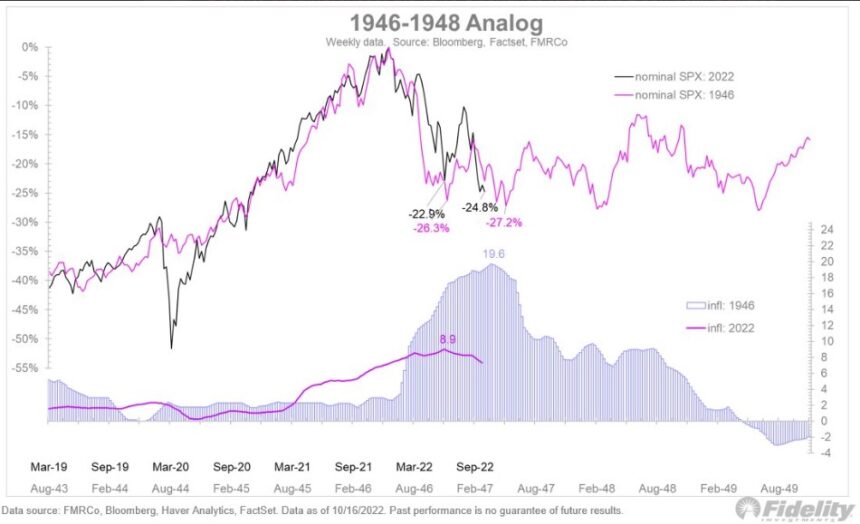
The crypto market is stuck in a tight range as larger cryptocurrencies are unable to break above key levels of resistance. The sector has been mostly inclined to the downside since September when Ethereum completed “The Merge”.
At the time of writing, Bitcoin (BTC) trades at $19,500 with a 2% profit in the last 24 hours while Ethereum records a 3% profit over the same period. Other cryptocurrencies follow a similar trajectory during today’s trading session with XRP and Cardano amongst the worst-performing assets in the sector.
Crypto And Global Markets Close To A Bottom, But Far From A Bull
The successful completion of “The Merge” left the crypto market without a narrative of its own. Thus, the nascent asset class has been moving in tandem with traditional equities and major indexes.
Macroeconomic forces have been dominating the price action in risk-on assets, most of crypto and equities, as the U.S. Federal Reserve (Fed) rushes to slow down inflation. The financial institution has been hiking interest rates unleashing a bear market that has rippled across the financial world.
In this situation, every market participant wants to know when crypto will finally bottom out. In order for this to happen, equities must find a bottom first, and according to Jurrien Timmer, Director of Macro for Fidelity, this might be close to happening.
Via his official Twitter handle, Timmer compared the current situation with the 1940 to 1947 inflationary periods in the United States. The North American country was going through a period of high inflation after World War II.
Timmer referred to this situation as a fiscal/monetary cocktail, the country was recovering from a major conflict with most of the world in ruins, still hurting from the massive expending and low resources. At that time, the S&P 500 saw a 30% decline.
Right now, this index is approaching those lows as it follows a similar trajectory. As seen in the chart below, the S&P 500 proceeded to move sideways for multiple years as inflation peaked at 19.6%. In comparison, today’s inflation stood at 8.9% at its highest month-to-month metric. Timmer said:
The 1946-49 bear market had a nominal decline of 30% and a real decline of 46% (amid 20% inflation). It was entirely a driven by valuations. The analog suggests we are near the bottom, but a long way from the next bull.

Other experts expect a similar scenario for Bitcoin and the crypto market. This might be positive news for long-term holders looking to accumulate at current levels, but not for those betting on a new bull run in 2022 or even 2023.






Be the first to comment